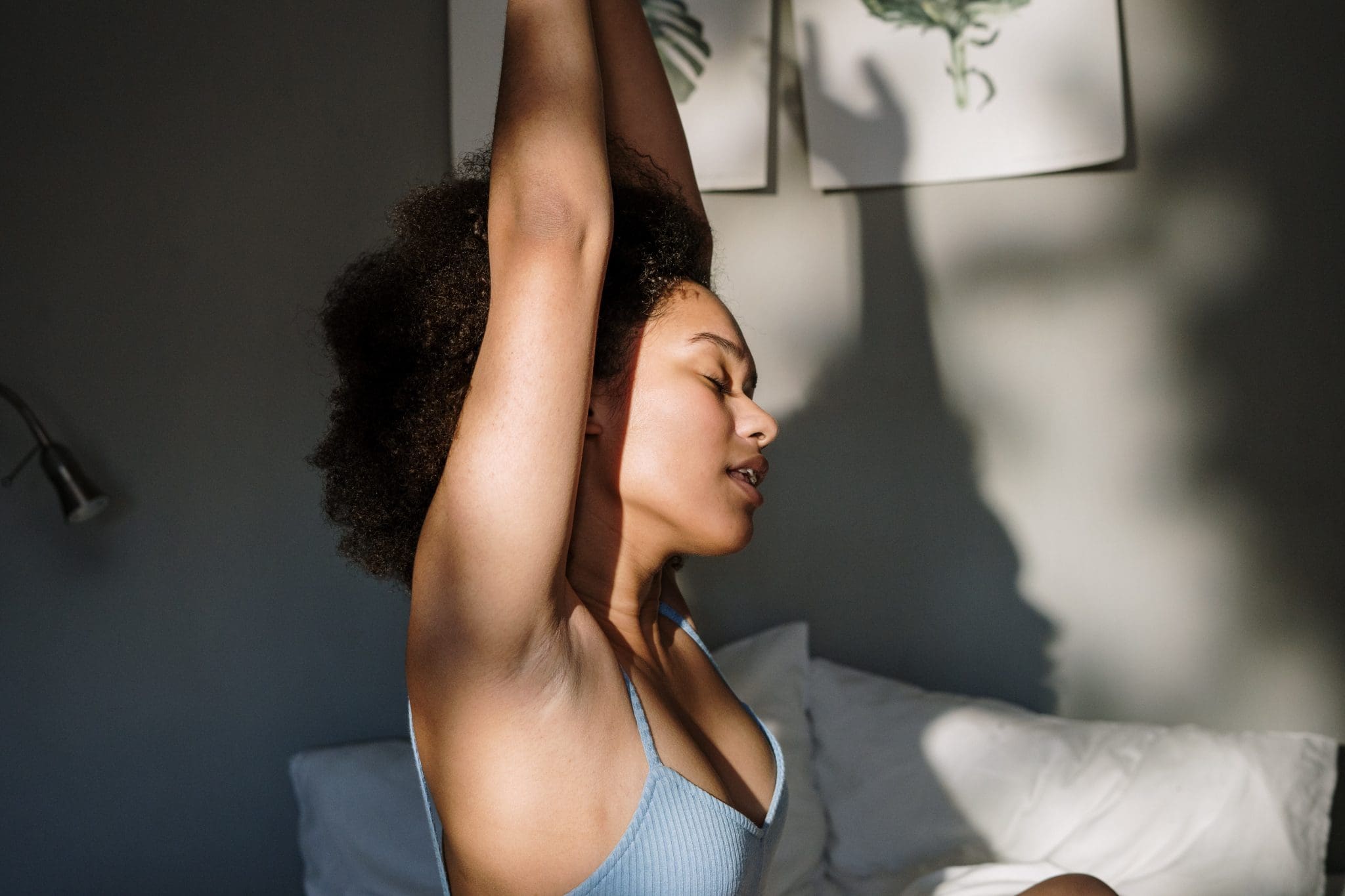Full Disclosure: Clicking on these links could mean a tiny commission for me, at no extra cost to you.
Are you a night owl who dreams of waking up with the sun and having a slow, productive morning routine? You’re not alone! Many people wish they could be an early riser, but just aren’t sure how to get there. Fortunately, there are a few simple tricks to help you transition from night owl to early bird. Today we’re going to talk about how you can make the switch, and about how you can become a morning person can benefit your overall health.

What Makes Someone a Morning Person?
Your ability (or lack thereof) to rise and shine in the morning is determined by your circadian rhythm – otherwise known as your body’s internal clock. This biological sleep-wake system operates on a 24-hour cycle that follows the same general patterns as the sun. This means that biologically, it makes more sense for us to rise and set with the sun for optimal energy levels throughout the day. As a result, most people tend to feel more awake and energized during daylight hours, and sleepy and more settled after dark. However, this may vary from person to person.
Exposure to daylight prompts your body to send signals that it’s time to be awake and alert for the day. When the sun sets your body begins producing melatonin, and continues transmitting it throughout the night to help you fall and stay asleep. The more aligned your circadian rhythm, the more restorative your sleep will be, and the better you’ll be able to function during the day. If you’re unable to get out in the sun, light therapy is another excellent alternative.
How Being a Morning Person Improves Your Health
Night owls usually find that they feel sluggish and tired during the daytime hours when they are expected to be productive for school, work, or social activities. They tend to experience decreased cognitive function, reduced physical performance, and are at an increased risk of health issues, mood disorders, and lower productivity.
On the other hand, early risers tend to have a lower risk of chronic health conditions and obesity, have enhanced cognitive function, better moods, and improved concentration. Since early risers usually have more time to eat a healthy breakfast, exercise, and get more chores or errands done, they have more of an advantage over night owls who may experience rushed mornings with very little time to get things done.
How to Optimize Your Circadian Rhythm
If you’re a night owl, you might be wondering how to become a morning person. The good news is that you can optimize your circadian rhythm! With a few lifestyle changes made over the course of a few weeks, you can transition into an early riser and reap all of the benefits it has to offer! Here are some tips to begin making the transition:
- Expose yourself to the sun first thing in the morning
- Create a consistent sleep schedule and stick to it
- Exercise every day
- Stop drinking caffeine at least 6 hours before bedtime
- Turn down the lights in the evening
- Put your phone away at least one hour before bedtime
- Develop a wind-down routine in the evenings
Any lifestyle adjustment will be challenging at first, but the good news is that with some time and consistency, you can optimize your circadian rhythm to become a morning person and improve your physical and mental health!








